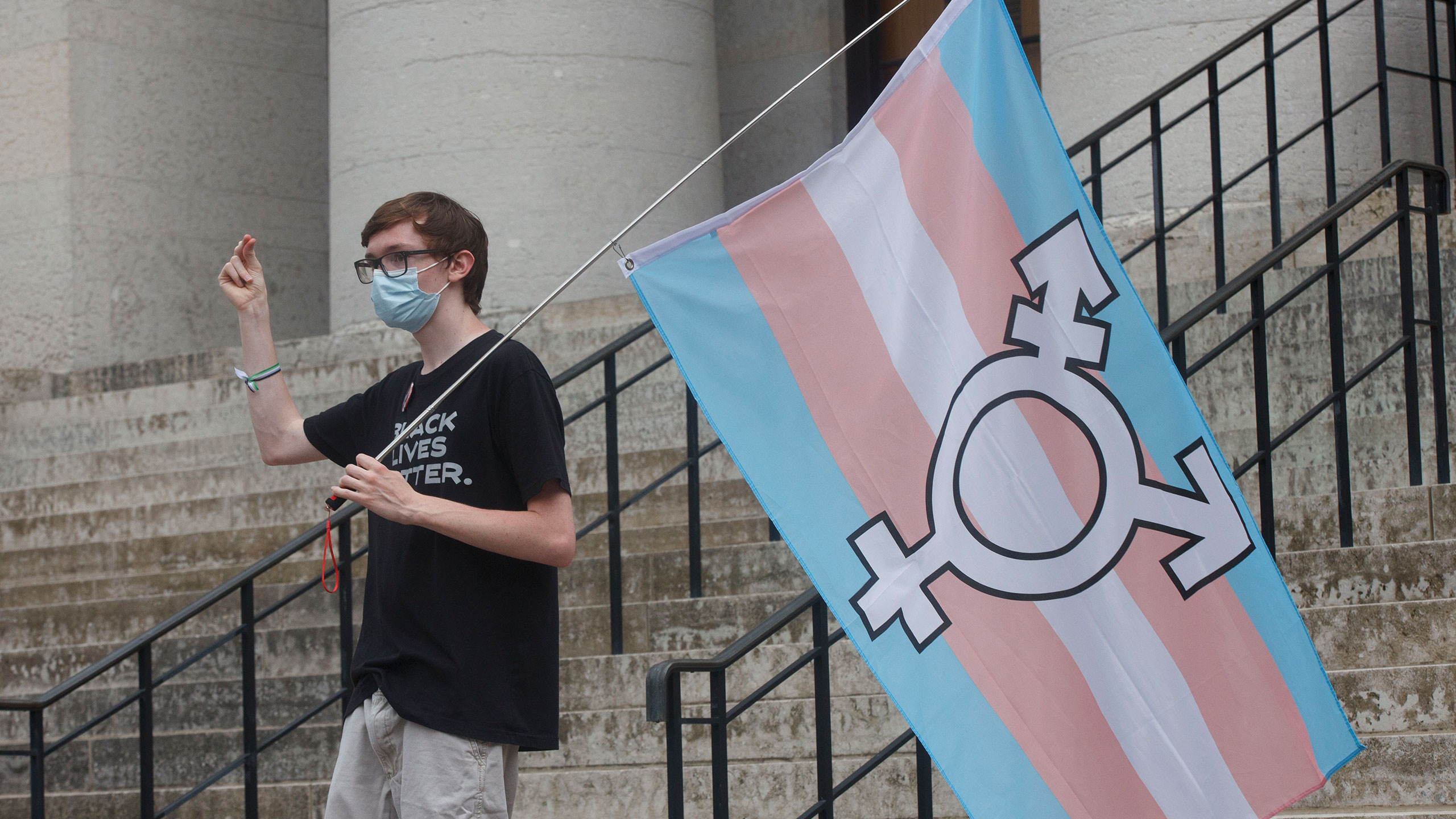Less than two weeks into 2022, legislators in seven U.S. states have already filed legislation attempting to restrict the rights of trans people. The vast majority are aimed at trans students who wish to play school sports in alignment with their lived gender.
Republican legislators in Arizona, Alabama, Indiana, Kentucky, Oklahoma, New Hampshire and South Dakota have introduced at least nine measures in the new year that target trans and non-binary youth. These bills target the ability of trans youth to participate in sports, receive gender-affirming medical care and use the bathroom of their choosing, as NBC News reports.
This wave of legislation is the next iteration of the transphobic “bathroom bill” push, according to Hannah Willard, vice president of government affairs for the LGBTQ2S+ group Freedom for All Americans. Those bills, which required trans people to use restrooms that correspond to their assigned sex at birth, were largely rejected or overturned, including North Carolina’s infamous HB 2. Now, Willard says, the same people behind those efforts are making trans kids’ sports participation their next target.
“I think what we’re seeing is a continuation of trends we’ve seen over time, and transgender young people are scared,” Willard tells Xtra. “They are heartbroken. There has been so much fear and trauma over the last couple of years. These transgender kids and their families are understandably exhausted.”
In 2021, a record number of anti-trans bills were passed in the U.S.: 17 in total, with the majority aimed at trans youth. Eight anti-trans sports bans were enacted in states such as Alabama, Florida, West Virginia, Mississippi and Montana. Arkansas and Tennessee, meanwhile, became the first states in history to limit gender-affirming health care for trans youth, although the scope of Tennessee’s law is extremely limited.
Fairness Campaign director Chris Hartman is already gearing up to fight this year’s wave of anti-trans legislation. In his home state of Kentucky, pre-filed legislation known as Bill Request 154 would require “schools to designate all interscholastic athletics based upon the biological sex of the students eligible to participate,” according to its language. In addition to harming trans female athletes, that proposal affects trans boys like Mack Beggs, a wrestler who won consecutive girls’ championships in Texas.
Hartman says this bill isn’t reflective of the concerns of Kentucky citizens but is copied and pasted from a national conservative strategic playbook.
“These trans youth sports bans are just carbon copies from legislation that the national groups have peddled around other states and have unfortunately had success in passing,” Hartman tells Xtra. He adds that LGBTQ2S+ issues “are not top of the list” for most Kentucky voters, “unless they’re really strongly pro-LGBTQ.”
Willard agrees that these bills “are not homegrown attacks.” She says the legislation represents “a co-ordinated effort by a very small group of vocal fringe organizations that are literally planting template legislation in state legislatures across the country,” including powerful right-wing lobby groups like the Heritage Foundation and the Alliance Defending Freedom (ADF). These organizations joined with dozens of anti-LGBTQ2S+ groups last year to create model legislation for states that wish to introduce their own anti-trans bills, which is readily available online.
But even as a record number of anti-trans bills are being introduced across the U.S., few are gaining real momentum. Of the more than 100 proposals introduced last year, 90 percent failed to become law, according to Willard.
“These trans youth sports bans are just carbon copies from legislation that the national groups have peddled around other states.”
In Kentucky, Hartman and the Fairness Campaign plan to take on this latest anti-trans sports bill the same way they’ve resisted other forms of discriminatory legislation in the past: by advocating at the state capitol and passing local ordinances to safeguard the rights of LGBTQ2S+ Kentuckians. At least 20 municipalities have passed non-discrimination protections in areas like housing and health care, and two have enacted ordinances banning conversion therapy: Louisville and Lexington.
But Hartman emphasizes that even the filing of discriminatory bills causes harm to trans people, whether or not they actually get signed into law.
“More than anything, people are just scared,” Hartman says. “Even though these bills haven’t passed for many years, every time they get introduced, it scares people. It creates incredible concern, and so there is danger just in introducing these bills, even when they don’t become law.”
Willard agreed that these bills can be harmful regardless of whether they pass, especially for trans young people.
“The message that is sent to transgender youth and their families is deeply damaging,” she says. “We know that families with transgender young people have already had to consider relocating, leaving their home states in order to ensure that their kids can access the health care that they need and can participate in their activities alongside their peers in school.
“It’s unconscionable that especially during the last several years, when our country has been facing an unprecedented crisis, that some lawmakers have chosen to prioritize these attacks on transgender kids.”


 Why you can trust Xtra
Why you can trust Xtra


